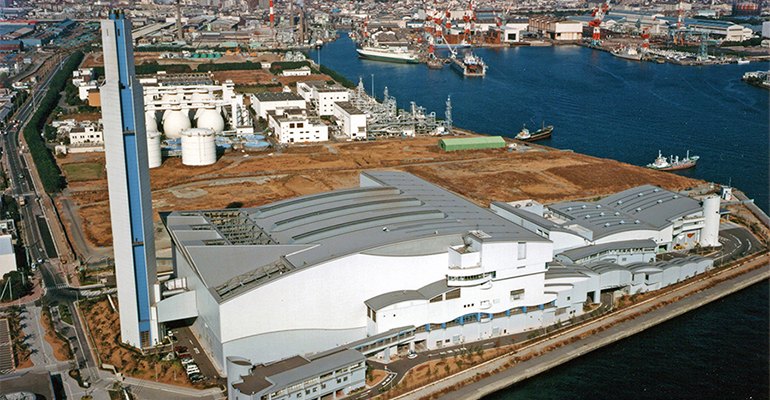In Japan, Mitsubishi Heavy Industries Environmental & Chemical Engineering Co., Ltd. (MHIEC), a group company of Japan-headed Mitsubishi Heavy Industries, Ltd. (MHI), has announced that it has received an order from the Yokohama city government to refurbish the combustion facilities at the Tsurumi waste-to-energy (WTE) plant in Suehiro-cho, Tsurumi-ku, Kanagawa Prefecture.

The facility has a total waste treatment capacity of 1 200 tonnes per day (tpd) of municipal solid waste (MSW). MHIEC will refurbish and improve the stoker type incinerators and related equipment, extending the working life of the facility and enhancing its energy efficiency. The contract is valued at JPY 6.127 billion (≈ US$56.37 million). Completion is scheduled for in March 2023 (four-year project).
The Tsurumi Plant was originally designed and built by MHI and began operations in April 1995. The facility comprises three stoker type incinerators, each with a capacity of 400 tpd, and related equipment. It has an electricity generating capacity of 22 MW.
The renovation contract comprises the renewal of superannuated core components at the facility, including the receiving and feeding equipment, combustion facilities, exhaust gas cooling equipment, ventilation systems, ash extractors, and instrumentation.
Increased energy efficiency and reduced emissions
The facility will adopt MHIEC’s patented New Incineration Control System to support stable incineration, and utilize high-efficiency motors and inverters to increase energy efficiency. These measures will reduce carbon dioxide (CO2) emissions by more than 6.3 percent annually, helping to curb global warming.
Renovation of waste to energy plants is increasing as operators aim to extend the service life of facilities and reduce their environmental impact. The Japanese national government also established a related subsidy system in fiscal 2010, further accelerating this trend.
Administered by Japan’s Ministry of the Environment, this programme is centered on improvements to existing facilities for more effective use, and as a measure to address climate change in the waste sector.
Municipal governments seeking to extend the operational life of their MSW facilities and implement climate change measures are eligible for subsidies on projects that reduce CO2 emissions, promote the introduction of leading-edge facilities, or grants for establishing a sound material-cycle society, equivalent to one-half or one-third of project costs.


